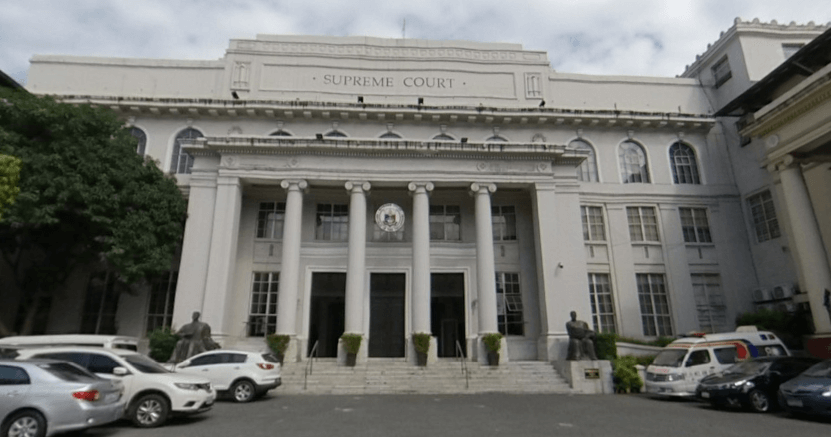The Supreme Court upheld the Civil Service Commission’s (CSC) decision to fire a cameraman from Radio Television Malacañang (RTVM), the presidential broadcasting team, after he was found guilty of sexually harassing a colleague in 2012.
In a Feb. 26 ruling that was made public only this week, the high court’s Second Division reinstated an earlier decision of the CSC which declared cameraman Vergel Tabasa guilty of simple misconduct. The commission also ordered the forfeiture of his retirement benefits and disqualified him from ever working in the government.
Tabasa’s victim filed a sexual harassment complaint against him in June 2013. She said that in December 2012, she was sitting on a sofa at Malacañang’s engineering office while watching a noontime show when the cameraman cornered her and tickled her right knee, much to her “shock and humiliation.”
The victim said she protested and tried to get away from Tabasa, which caused her to hit her elbow in a nearby cabinet. Instead of apologizing, the female employee said that the cameraman actually taunted her for rushing to the toilet to cry over the incident.
While Tabasa admitted that he touched the victim’s knee, he claimed that it was a just joke done without malice. He also claimed that the act was not work-related.
Both RTVM and the CSC found the cameraman guilty of simple misconduct. But because Tabasa had already been previously suspended for having a “verbal altercation” with another colleague, he was dismissed from government service.
Tabasa took the matter to the Court of Appeals in 2017, which reduced his penalty to a six-month suspension without salary and benefits. While the CA affirmed that Tabasa was guilty, it took into account the “triviality” of the offense and the cameraman’s decades-long service in the government.
However, the Supreme Court reversed the lower court’s ruling and upheld the cameraman’s dismissal and disqualification from government service as well as the removal of his retirement benefits.
“Unsolicited physical contact, even if done in jest, has no place in the workplace, especially in government service,” the court’s Second Division said in its 13-page decision.
“Even if the act was done without malice, it is beyond all bounds of decency and decorum for a person to touch any body part of another without consent for that matter,” said the Supreme Court.
“The touching of [the victim’s] knee was clearly unsolicited and uncalled for and Tabasa does not have any right to do so…Veritably, Tabasa not only demonstrated his moral depravity and lack of respect towards [his] female co-employees, but also his unprofessionalism in his interactions with his colleagues,” it added.
Read more Coconuts Manila articles here.




